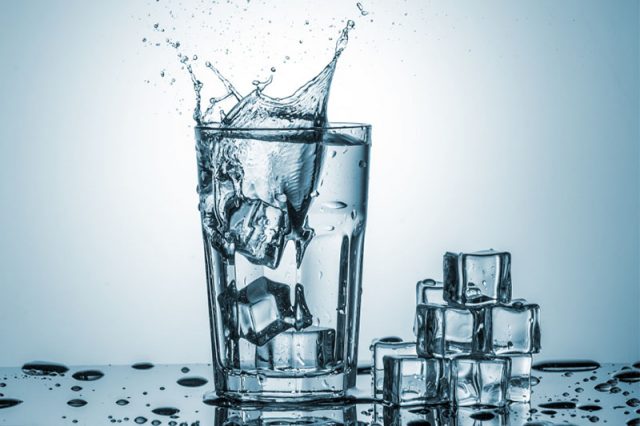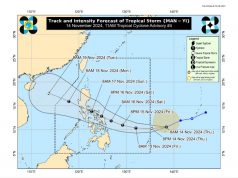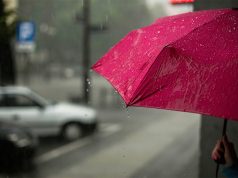Experts advise Filipinos to remain hydrated this warm and dry season, but did you know that there are also some risks in drinking cold water?
State weather bureau PAGASA previously warned that the country will experience hotter days and nights as May rolls in.
It added that the forecast maximum temperature for May had been breached last week, with Isa, Isabela recording a temperature of 40 degrees Celsius on April 15.
Last month, PAGASA declared the start of the warm and dry season which is associated with “summer time.”
PAGASA-Climatology and Agrometeorology Division Officer-in-Charge Ana Liza Solis also said that the actual air temperature currently being experienced this year is warmer than the previous year.
“As early as February, nakapagtala tayo ng more than 36°C or 37°C as early as now, so it could be warmer than usual, but hindi naman natin masasabing buong taon. Ito pong warm and dry season, months ang sinasabi natin, ay maaaring mainit na tag-init,” she said before.
The heat is exacerbated by the ongoing effects of the El Niño, a climate pattern associated with drought and higher temperatures.
Experts advise the public to remain hydrated, refrain from going out from 10 a.m. to 4 p.m., wear light-colored and loose clothes and seek cool spaces with air conditioner and fans.
A medical officer from the Department of Health-Cordillera Administrative Region specifically advised Filipinos to drink a maximum of three liters of pure water daily to prevent heat stroke.
“Dehydration can lead to the body’s fluid imbalance that can progress to heat stroke. (Drink) at least three liters a day and avoiding altered liquid with sugar or flavors,” medical officer IV Jennifer Joyce Pira of DOH-CAR said before.
The DOH said people should avoid or lessen their consumption of iced teas, coffee, soft drinks and alcoholic beverages since these are diuretics or those that increase the excretion of water from the body through urine.
While water is the preferred drink, family medicine specialist Ferdinand de Guzman said that it is not advisable to drink cold water continuously in one go.
“Nagco-constrict ang mga ugat natin. So, magsisikip po iyan. So ‘pag nagsikip po iyan, ito po can still lead to stroke,” the physician said in a radio interview before.
De Guzman said it is still safe to drink cold water, but it should not be in a sudden manner.
“Basta konti-konti lang o ‘wag biglain po na uubusin natin,” he said.
A heart expert also said that sudden drinking of cold water can have a negative effect on the heart rate.
“The sudden drinking of very cold water, especially after exercise, could lead to stimulation of the Vagus nerve, which is (the) main nerve that controls specific body functions including heart rate, and could lead to irregular heartbeats or cause them to stop, and therefore, endanger the person’s life,” cardiovascular consultant Alaa el-Ghamrawy said in a report.










